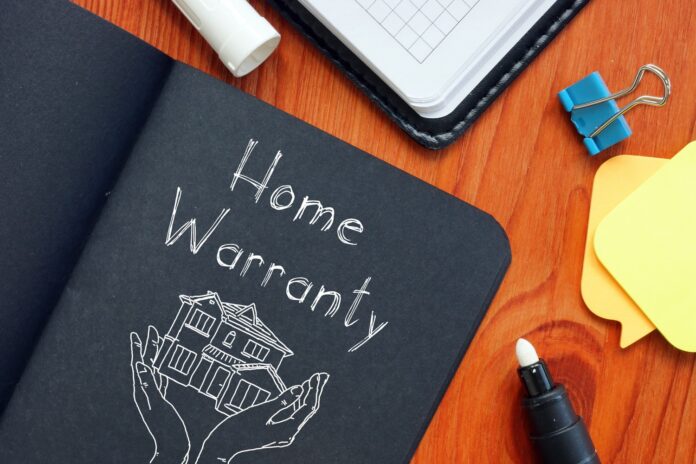Home warranties are service contracts designed to cover specific systems and appliances within a home, and it’s essential that before purchasing one you read the contract carefully in terms of exclusions, limitations and costs.
Home warranties offer new homeowners peace of mind that the home they are purchasing has been properly cared for, though these warranties should not serve as a replacement for good maintenance practices.

Coverage
Home warranty coverage is a service contract designed to shield homeowners against the costs of repairing or replacing certain systems and appliances, such as water systems or appliances. Before buying such coverage, it is essential that homeowners understand its terms and conditions in detail before signing any contracts. In general, they typically cover everything listed as being covered on the description for systems or appliances under warranty; however, certain conditions such as blockages caused by tree roots or accidental damages like dropping heavy objects can’t be covered such as blockages caused by tree roots and accidental damages such as dropping heavy objects onto them are excluded.
Reading the policy document carefully is the key to understanding what’s covered by a home warranty policy. This document typically outlines exactly which items and expenses are covered as well as any limits set for repairs during a policy period, as well as details regarding costs involved for specific repairs.
Home warranties provide coverage for repairs or replacement of systems and appliances that have become inoperable as the result of normal wear and tear, such as air conditioners, furnaces, water heaters, dishwashers and refrigerators. They may also extend coverage to garage door openers and various smaller appliances – many providers even provide plans that specifically cover particular systems or appliances; others allow policyholders to purchase coverage for pools and spas as well.
One major drawback of home warranties is their inability to cover pre existing problems that could have been avoided through regular maintenance, as they’re designed to cover only unexpected events like appliance and system breakdown. A leaky roof or broken window won’t typically wear and tear over time and won’t be covered either; additionally if these issues were known prior to purchasing your home they are considered “known conditions” and won’t be covered under your home warranty plan.

Exclusions
Home warranty coverage can be an excellent way to safeguard both new and established homes against unexpected issues, but certain things that a warranty won’t cover must first be understood prior to purchasing one.
As part of your home warranty coverage, it’s best to read carefully through its documents and terms and conditions before entering a contract with any provider. Comparing multiple plans from various providers will help you select one best suited to your home – taking this time-consuming step will prevent unexpected bills for items covered under your home warranty policy from popping up unexpectedly!
Consider this scenario: you notice a damp smudge on your ceiling and, upon further research, discover it is being caused by a leaky water pipe. While not an emergency situation, repair of this nature will cost hundreds of dollars and could even cause further damage to your home – repairs of this nature usually are not covered under home warranties as they fall under normal wear and tear categories. Also, there might be problems with covering appliances, as you can see here: https://www.cinchhomeservices.com/faq-library/-/faq/does-a-home-warranty-cover-the-dishwasher
Note that many companies set limits on how much they will cover per year or event for repairs and replacements, in order to balance homeowner premium payments against their need to make money and stay afloat. While these caps should not prevent people from purchasing plans, it’s wise to read all relevant contracts prior to signing them.
As well as these restrictions, home warranty contracts typically exclude certain appliances or systems. For instance, some companies won’t cover refrigerators with ice makers while others might only include one washer and dryer set within coverage. Exclusions exist to protect against abuse of the system so it’s essential that you review your contract thoroughly to understand what’s included and excluded.
Home warranty providers typically offer add-on options that cover individual systems or appliances; for instance, pools and spas can be covered, while another could cover septic system pumping costs.

Repairs
Home warranty plans provide coverage for the repair or replacement of systems and appliances that breakdown, such as plumbing and electrical wiring, heating/cooling units and major appliances such as refrigerators or washing machines. Each plan may differ in terms, conditions and exclusions – to make sure what coverage there is under your service contract, read your service contract thoroughly to understand its terms, conditions and exclusions.
As an example, if you notice damp stains on the ceiling, home warranty companies likely won’t cover it; rather, homeowners insurance might cover it since this issue doesn’t originate within any system or appliance – it could even be structural. Furthermore, many home warranty policies limit coverage so if you decide to fix the system or appliance yourself or hire outside help they won’t reimburse you if this option was chosen.
Be mindful that home warranties don’t cover repairs for systems and appliances that have broken due to neglect or abuse; thus it is crucial that routine maintenance be conducted on these systems to extend their lifespan and avoid breakdowns from everyday wear and tear.
Additionally, most home warranty plans do not cover pre-existing conditions if detected by an inspection of your property, meaning if an inspector discovered several items needing repair or replacement but were already known issues; their coverage would likely not extend.
Liberty Home Guard (LHG), for instance, provides affordable plans with generous coverage limits and outstanding customer service, boasting an A rating with the Better Business Bureau and boasting 4.7 out of 5 stars on Google Reviews. Their plans also come equipped with Utility & Service Line Coverage as an extra safeguard against broken lines in New York that may prove costly – as well as an easy payment plan so that you can easily afford what coverage you require.

Cost
Home warranty coverage provides homeowners with protection for unexpected repairs and replacements due to normal wear and tear on home systems and appliances, such as those covered by homeowners insurance policies or warranties provided by manufacturers. Home warranties differ in their administration as different providers often offer different plans with optional add-ons based on how often their items need replacing and where you live – the costs can also differ accordingly.
Cost of home warranty plans depend on a number of factors including what items they cover as well as service fees and deductibles associated with each plan. Many providers allow customers to customize their plan based on how many claims they expect to file over a specified timeframe.
Compare home warranty plans that offer competitive monthly fees and manageable deductibles before making your selection. Also take into account what kind of savings might result from selecting plans without including certain major home systems and appliances like the garage door and air conditioner.









